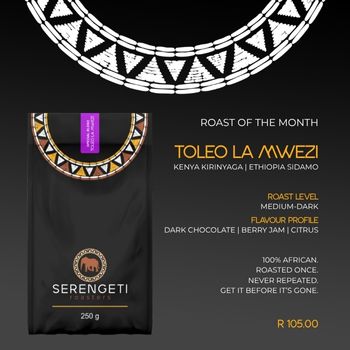Experience our limited-release blend that captures a fleeting but unforgettable flavour moment.

The gold standard: what the SCA recommends (and why it matters)
For consistently delicious extraction, the Specialty Coffee Association (SCA) recommends water that’s odor-free and within these ranges (as CaCO₃ unless noted): TDS 75–250 mg/L (target 150), hardness 17–85 mg/L (target 68), alkalinity ~40 mg/L, pH 6.5–7.5, and sodium around 10 mg/L. Hit those, and you unlock sweetness without astringency while protecting your gear from heavy scale.
Quick definitions:
- Hardness (gH): calcium/magnesium that help extraction—but too much = scale.
- Alkalinity (kH): buffering that tames acidity—too little = sour; too much = flat.
City-by-city snapshot (2023–2025 public data)
Important: municipal water is blended and changes by zone and season. Treat these as representative snapshots; if you’re dialing in espresso, test your own tap.
Cape Town: Most zones are soft to moderately hard (20–88 mg/L). Soft water can skew sour with light roasts; add minerals or use a remineralization filter.
Johannesburg: Rand Water’s operational band is 20–200 mg/L, generally moderate hardness—good for brewing, but descale on schedule.
Durban: Variable from soft to moderate depending on works (30–150 mg/L). Adjust minerals based on your zone.
SANS 241 vs 'good for coffee': don’t confuse safety with flavour
SANS 241 is South Africa’s drinking water safety standard. It does not define a health limit for hardness; water can be safe yet sub-optimal for espresso taste or machine longevity.
Test your water at home (cheap + accurate)
- gH/kH drop kits measure hardness and alkalinity directly.
- TDS pens are proxies only—use alongside drop tests.
DIY 'balanced coffee water' recipe (fast, repeatable)
Goal: ~68 mg/L hardness, ~40 mg/L alkalinity.
Make 1 litre:
- Distilled/RO water: 1,000 mL
- Epsom salt (MgSO₄·7H₂O): 0.168 g
- Baking soda (NaHCO₃): 0.067 g
Adjust for taste and scale risk; use food-grade salts.
By city quick fixes
Cape Town (soft): Use DIY recipe; check for light scale 2–3×/year.
Joburg (moderate): Reduce alkalinity slightly; descale regularly.
Durban (variable): Adjust minerals per zone hardness.
Descale cadence (rule-of-thumb)
< 50 mg/L: inspect 2–3×/year
50–120 mg/L: inspect quarterly
> 120 mg/L: inspect monthly
SA reference table
|
City |
Source |
Hardness (mg/L as CaCO₃) |
Category |
|
Cape Town |
City Annual Report |
20-88 |
Soft-Moderate |
|
Johannesburg |
Rand Water |
20-200 |
Moderate |
|
Durban |
eThekwini Data |
30-150 |
Soft-Moderate |
Frequently asked questions
Q: Does SANS 241 mean my water is 'good for coffee'?
A: Not necessarily—SCA ranges are for flavour/equipment, not safety.
Q: Is Joburg water hard or soft?
A: Generally moderate; test your own tap.
Q: Cape Town’s soft water makes my espresso sour—what do I do?
A: Use the DIY recipe to lift hardness and alkalinity.
Q: Are TDS pens useful?
A: Only with gH/kH tests.
Q: Do filters fix everything?
A: Carbon improves taste but doesn’t set hardness/alkalinity precisely.


















